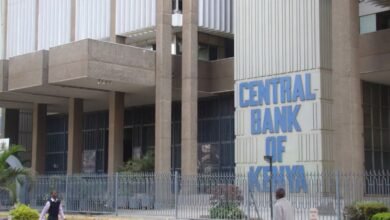
President Samia Suluhu Hassan ordered authorities at the Information Ministry on Tuesday, April 6, 2021, to lift sanctions on some media outlets in the country.
According to The Citizen, a local daily news outlet in Tanzania, the move could define resident Suluhu as a democratic leader who has nothing against freedom of expression.
“I am told you revoked licenses of some media outlets, including some online television stations. You should lift the ban but tell them to follow the law and government guidelines,” she said.
She was speaking during an event to swear-in newly-appointed Permanent Secretaries at State House, Dar es Salaam.
She said by lifting the bans on some media outlets, the world will no longer regard Tanzania as a country that launches unnecessary attacks on press freedom.
“But make sure that whoever is given a go ahead to operate a media company does follow the law of the country,” she said.
In the race to October 25 general election in Tanzania, the late Magufuli frenzied to clamp down and tighten its grip on media.
It was a move which critics said was restricting local press freedom while also limiting the influence of international media and ultimately undermining democracy.
The Tanzania Communication Regulatory Authority (TCRA) had published new rules banning local media from broadcasting foreign-made content without the government’s approval.
The regulations, known as The Electronics and postal communications amendment, also required foreign journalists working with their local colleagues to be accompanied by a government-appointed officer when covering local stories.
All domestic media were forced to apply for a separate license if they wish to broadcast content from foreign media on their channels.
The government claimed the changes to the regulations were meant to ensure content produced by foreign outlets and aired locally adheres to professional standards.
In 201, TCRA imposed fines of approximately Ksh.256,538.49 (2,000 Euros) on two online TV channels – Kwanza TV, Millard Ayo TVand Watetezi TV– on 27 September last year and suspended one of them, Kwanza TV, for six months.
All three online TV channels are critical of the late Tanzania Preisdent John Magufuli, who attained powers in 2015, but died on March 17, 2020 due to a heart-related condition after successfully seeking re-elction in 2020.
Officially, the three online TV channels were punished for failing to publish their editorial policy statement and charter -and for “misleading publication” in Kwanza TV’s case- in line with a 2018 online media law.
The law provides for an inclusion of an obligatory registration fee of an average of Ksh.97,739.78 ($900) a year.
But even as the country, under a new watch by President Suluhu moves in to sanitise freedom of expression, she maintained the media must follow the law abd government guidelines
She said authorities must be open and punishments issued by authorities must be in line with the specified offence.
Tanzania is ranked 118th out of 180 countries in RSF’s 2019 World Press Freedom Index after falling 47 places since 2016, more than any other country in the world during the same period.
Additional report by The Citizen





